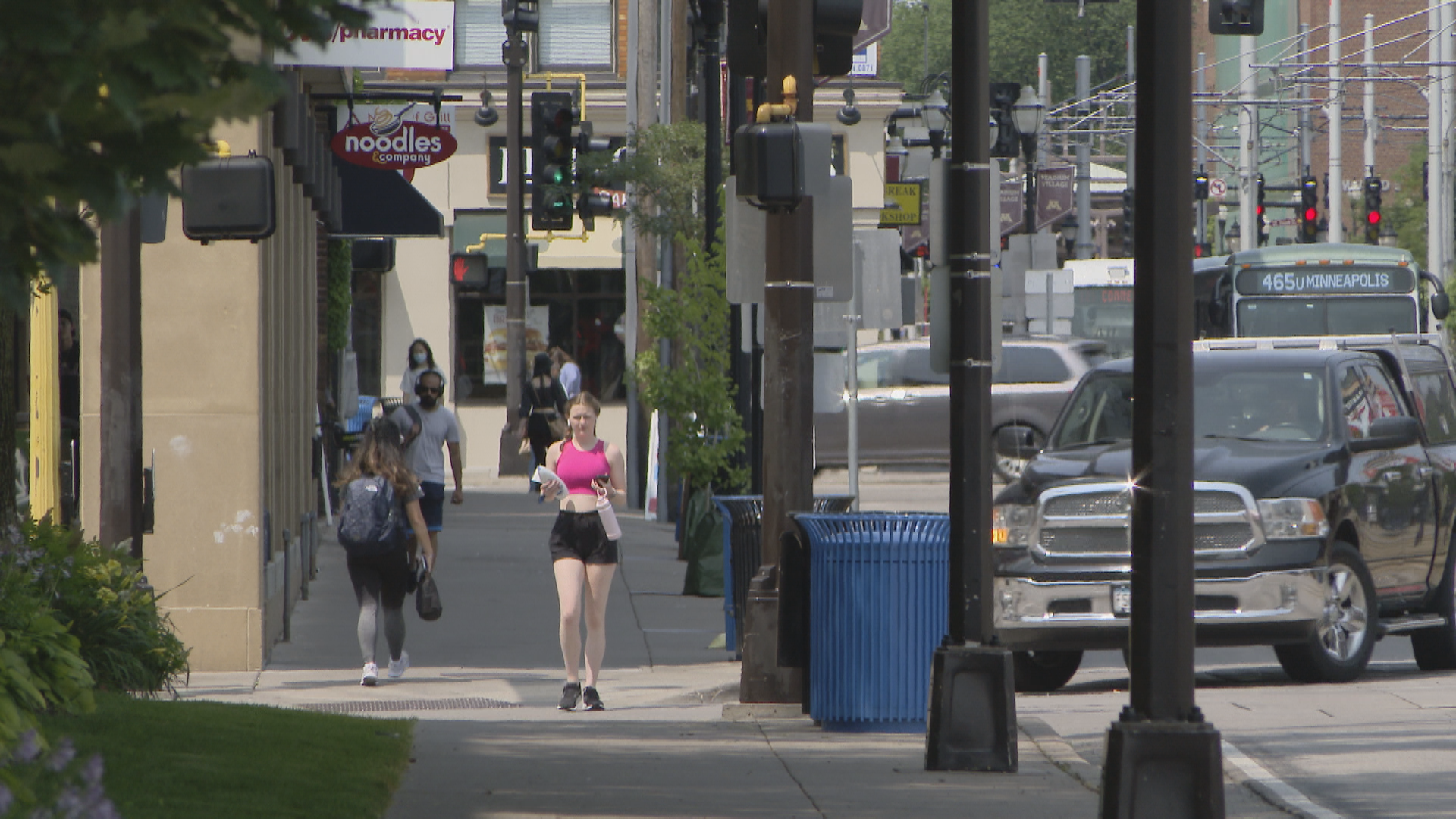MINNEAPOLIS — Last week, a conversation with the new University of Minnesota student body president got us thinking.
"I read a Boynton Health Survey when I was thinking about running," Abdulaziz Mohamed said. "One in five undergrad students believe that they are food insecure on campus."
As for where to shop for affordable groceries, the options are slim at the U of M. First year Physical Therapy student Kelsey Leppert is just starting to find that out.
"My roommate – I just started living with her – I said I lost my parking spot when I tried to go to Aldi, and she said, 'oh no you have to go to Fresh Thyme,'" she said. "I asked, 'Is there anywhere else?' and she said, 'no, you just go to Fresh Thyme,' and that's just the consensus here. It's just easier to go to that one more expensive place."
"The University of Minnesota lives in a food desert. The nearest affordable grocery is a couple miles outside of campus, and these are the things I recognize," Mohamed said last week. "And one of the things I want to be able to build and create (is) a food co-op on campus, where students can be able to get affordable groceries at an affordable rate."
However, ever since the updated Hunger Free Campus Act was signed into law by Governor Tim Walz last month, the University of Minnesota, along with a whole slew of public and private not-for-profit post-secondary education institutions, can apply for a designation of a "hunger-free campus."
The bill was in existence before, but Sen. Aric Putnam (DFL-St. Cloud), reintroduced it to include a wider array of institutions.
"What makes this particular version of the Hunger-Free Campus Act so significant is it expands its scope," he said. "[It] creates a bit more of a dynamic program that can fit all different kinds of institutions and most importantly it provides money."
A school can receive a hunger-free designation if they meet five criteria.
- If they have a food pantry on campus
- If they inform students of their eligibility for benefits such as SNAP
- If they hold a hunger awareness day or an event once a year
- If they have an emergency grant program for students with food insecurity
- If they establish a hunger task force.
The grant money they can apply for is now an extra incentive so as Senator Putnam calls it, governments can help folks who are helping themselves.
"It's hard to be a human these days," Putnam said. "It's hard trying to make your life better. When you explain it to people that way, not that people in school aren't trying to make their life better, of course, they are – but this is one specific area where we can build capacity and build on the strengths we already have and help people who need that help."
And Putnam said he is hoping the bill will bring attention to this issue at institutions where they haven't even thought about this before.
"You know how teachers are at all levels," he said. "Sometimes we're just not aware of the struggles students are going through. One of the things that I think is important in work like this is it gets people to realize the problems that are out there, so that we can be a little bit more empathetic and help people who need help."

